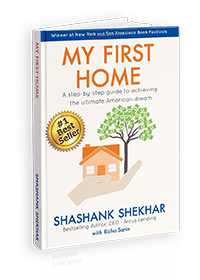How Vaccines and Variants are Affecting the Market
Author bio section
I am the author of this blog and also a top-producing Loan Officer and CEO of InstaMortgage Inc, the fastest-growing mortgage company in America. All the advice is based on my experience of helping thousands of homebuyers and homeowners. We are a mortgage company and will help you with all your mortgage needs. Unlike lead generation websites, we do not sell your information to multiple lenders or third-party companies.
According to the CDC, 57% of the US population has received at least 1 dose of the COVID vaccine (source: The Washington Post). With the rollout of the vaccine also came a lifting of restrictions including face mask requirements and social distancing. But who could predict the rise of the delta variants causing a spike in COVID cases in the last few weeks? As the nation scrambles to adjust to the new dangers, the market will have to do the same.
Delta variants have put the economy in question; will there be new lockdowns forcing the businesses to close again? Investors’ first response was to rush to safer investments; treasury prices went up, causing yields to go down – which is tied to mortgage rates. This knee jerk reaction, however, may reverse itself if the delta variants have less impact than expected and the economy continues to grow.
The Up Side
Low rates cause demand to increase for new homes. This is generally a good thing for the market. However, increased demand combined with low supply have pushed up housing prices. As of the end of July, housing prices have continued their streak, up 19% year over year. High prices are certainly pushing some would-be buyers out of the market. At the same time, mortgage purchase applications (a leading indicator) fell to their lowest level since May 2020 (source: National Mortgage Professional).
Reduced demand for homes could be a good thing for the current housing market; even with low rates, housing prices cannot sustain their record levels. And if rates continue to stay low into next year, lower prices and low mortgages will support growth in the housing market.
Realtor.com’s Chief Economist, Danielle Hale, doesn’t think the delta variant will have any additional impact on buyer demand. Buyers can continue to search for homes online, take virtual tours, and schedule tours (with masks) as needed. People who are concerned about high prices or safety have likely already stepped out of the market.
If vaccinations prevent deaths, even with the delta variant, then businesses may never see the full shutdowns of 2020. More people in the US are willing to get the vaccine as a result of the variant; this could be a good thing if it prevents hospitalizations. Many are looking to the UK; with a similar percentage of their population vaccinated, and a surge in delta variant cases, as of July 26, they were not seeing hospitalizations increase (source: The Washington Post).
The Down Side
Some are concerned that delta variants may just be the start of the mutations that could prove resistant to vaccines. This could push the US into lockdowns, though this would be a last resort; mask mandates may return (as we are already seeing in some regions) but few have a taste for the full quarantines we saw in 2020.
Even with no full shut down of businesses, and social distancing may limit growth in certain industries (especially hospitality). Additionally, if people become afraid to go back to more normal circumstances, this may affect both consumer demand and labor supply. The result could still be a drag on the economy.
A rise in variants may also raise concerns about city living just as people were settling back in. This may increase demand for those suburban and rural areas again. On the other hand, some may think that cities are safer; they tend to have higher percentages of vaccinated people.
City or country, buyers may be scared into avoiding home listings; with uncertainty about the future, they may want to stay put. If housing inventory shrinks further this will continue to pinch home sales no matter how strong demand is.
In fact, if more people hunker down, they may want to spend more time and money fixing up their homes, using up precious lumber, appliances and other building materials. Housing supply is already limited; reduced construction or limited building materials could be especially taxing when mortgage rates are low. The combination of high demand and low supply could send prices through the roof (if they aren’t already).
Some are saying that if there is a new lockdown, then the US will release more stimulus money. But this may also push up inflation and force the Fed to take steps to increase rates earlier than expected. Rising rates would reduce demand for new homes.
Let’s just hope that delta variants can be contained, and a lock down is not required. A slow and steady economic improvement, along with a slow and steady rise in rates (it has to come sometime) would be the best news of all for the housing market.







